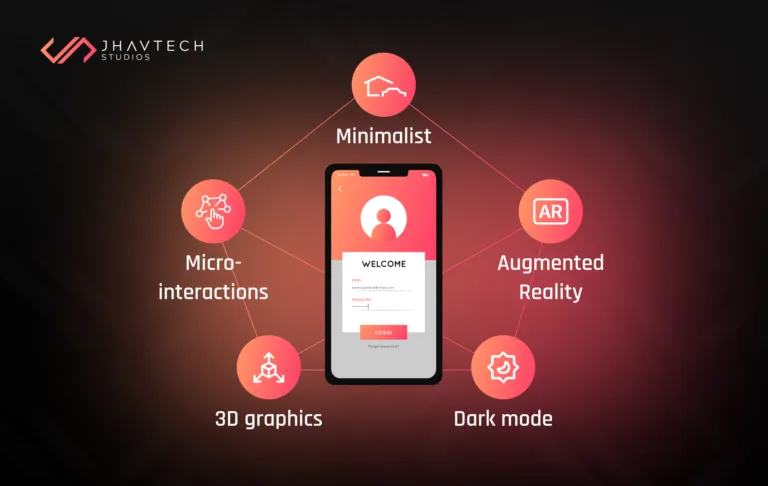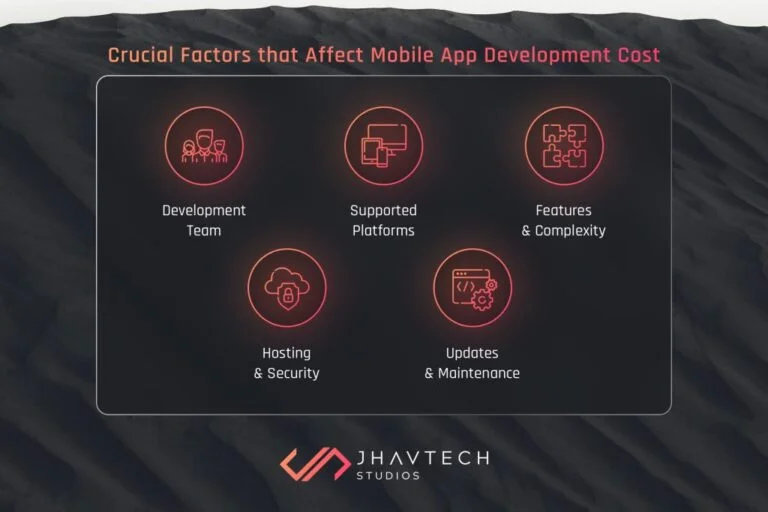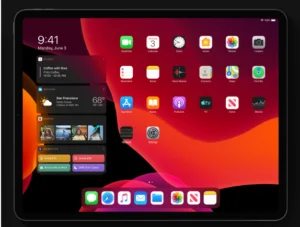Statista, a German online portal for statistics, projected that by 2020 the international mobile app business will skyrocket in value to $190 billion, from just $70 billion in 2015.
In 2017, iOS and Android were the two most commonly used OS for smartphones. They held a market share of 14.8 percent and 85.1 percent respectively. A year later, there were 2 million apps in the App Store (for iOS) and close to 4 million apps in Google Play (for Android).
Amid the incredible boom of the smartphone industry, the debate about native versus cross-platform app development continues to rage. And to complicate matters, hybrid app development entered the fray. So where should you stake your bet?
In this post, we’ll discuss the differences between native, cross-platform and hybrid app development then explain some of their pros and cons.
Native App Development
Native applications are designed and crafted for use in a specific platform or device such as Android, iOS or Windows. They are created and coded for a particular platform in its native programming language. For instance, Java, Kotlin, and Python are used for developing Android apps. For iOS, the languages include Objective-C and Swift.
There are various guidelines for each platform and developers must strictly adhere to them because they differ in terms of graphic styles, typography, visual effects, etc. The following are the major pros and cons of using the native approach in mobile app development.
Advantages:
Smooth and Seamless Performance
The technologies used in creating native apps are platform-specific; hence the native code has direct access to the operating system and functionalities of the host. This simple and seamless interaction with the native features of mobile devices improves the overall performance of the app, particularly when rendering multimedia content. This also implies that developing complex apps using native code minimizes the risks of downtimes due to crashes or freezes.
Speed and Better User Interface
Considering the fact that the app was optimized for Android or iOS, it will garner higher ratings in speed and performance tests. Note that in the process of creating native apps, developers take into account everything including the use of battery and memory. They also make it easy to execute gestures support and integrate new functions to the app. And since native apps flawlessly integrate with the mobile OS, users can easily navigate a familiar interface, resulting in positive experiences and repeated use.
Flexibility
Native applications give users quick access to built-in devices like the camera, calendar GPS, and other functionalities of the smartphone. There are no restrictions when creating the interface – unlike in hybrid apps – so everything that the technology has to offer can be easily implemented.
Data Security
In order to protect and secure your data, there must be full efficiency of hardware resources and this is only possible in native app development.
Disadvantages:
Expensive
In most cases, developers specialize in a single platform, whether it’s Android, iOS or any other. In developing a native app, you’ll need as many teams as the number of platforms you intend the app to be created on. This means you’ll need a significant sum to finance multiple development teams. Moreover, future updates will incur expenses multiplied by your number of teams.
Time Consuming
Native apps require more time to develop as compared to cross platform and hybrid apps. Creating and executing the design for multiple device dimensions, such as the different variations of iPhones, Android, and tablets, generally takes a longer time to complete the app. The same code cannot be used on different platforms and the programmers will need more time in order to convert and rewrite the code, increasing both the cost and development time.
Cross-Platform App Development
As the name implies, cross-platform require developing apps that can run on different operating systems. Once the application’s code is written, it can be used on various platforms without compatibility issues. It’s essentially an all-in-one approach that can save time and money. The following are some of the major pros and cons of using cross-platform in mobile app development.
Advantages
Fast and Economical
The development teams don’t need to write specific codes for different platforms. The so-called ‘code once, run anywhere’ technique enables them to use a single code on different platforms. This considerably cuts costs and shortens the development time. In fact, it has been shown that the use of single-source code reduces 50 to 80 percent of development efforts.
Ease of Deployment
Developers don’t need to learn different platforms before creating their apps. They simply need to master a few and get on with their work. And since they don’t need to create multiple codebases, the deployment on the target platforms is a lot faster. In addition, future modifications to the app can be performed simultaneously without the need to make individual changes on each platform.
Wider Reach
Developing cross-platform applications provides access to a wider audience. This is crucial because it can lead to increased revenue.
Disadvantages
Performance Glitches
Cross-platform apps don’t always integrate seamlessly with their target operating systems. Consequently, some of the applications fail to function optimally due to inconsistent communication between the native components of devices and the non-native code.
Slow Code Performance
Cross-compliance during the development stage makes the code sluggish. In addition, there are instances when it becomes imperative for developers to use tools that are suited and limited to a specific app.
User Experience Issues
Applications developed using shared code may fail to deliver robust user experiences. Cross-platform apps can’t take full advantage of native-only features to offer superb user experiences due to the different screen layouts, functionality, and platforms.
Hybrid App Development
A hybrid app combines the elements of native and Web applications. It is often associated with mobile computing and is written using web technologies like CSS, HTML5, and JavaScript. It runs inside a native container and uses the browser engine of the mobile device to render the HTML and process the JavaScript locally. In essence, it is the fusion of native execution and web technology.
The following are some of the major pros and cons of using hybrid app development.
Advantages
Low cost with ease of development
There is no need to spend separately for creating multiple versions of an app for different platforms. This means app development occurs only once for all the platforms and there’s no need to hire several programmers. This saves a substantial amount of money, especially for small businesses that want to save big while drawing more revenue.
Shorter Time to Market
There is fierce competition and often there’s the same concept being pitched by several businesses. Hence, it’s a must to make your app go live as quickly as possible. If this is the case, then hybrid app development is the way to go.
High Speed
To date, native applications have set the benchmark for speed and performance. However, when it comes to hybrid app development, speed is not an issue either. When comparisons are made with other mobile development options, hybrid apps are actually faster than responsive websites and mobile web. A hybrid app is expected to run fast even when there are multiple users because it doesn’t have to rely so much on network communication.
Hassle-free integration with other apps
Hybrid apps can seamlessly integrate with other applications. This is in sharp contrast to native apps that run only on the same operating system. Users find it difficult to make them integrate with other apps. Moreover, since hybrid apps connect easily with the device’s system environment just like native app operations, users will not experience even the slightest of glitches.
Disadvantages
Performance in general
Hybrid applications add an extra layer between the source code and the target mobile platform, particularly the hybrid mobile framework. This can lead to loss of performance although it varies from one application to another. This is so glaring that Facebook founder Mark Zuckerberg once stated that the biggest mistake they’ve committed is betting on HTML5 over native. They eventually migrated their mobile app to native, indicating a huge difference as far as business applications are concerned.
User Experience
Hybrid apps don’t perform exceptionally well as far as user experience is concerned. It is difficult to maintain a robust user experience between Android and iOS app. If you focus more on Android, the user experience will worsen for iOS users and vice versa. Also, the efficiency and performance of hybrid apps are a bit slower and less polished when compared to native apps, so it becomes frustrating for users to run a high-performance app.
Debugging
Debugging is a major concern due to the extra layer from hybrid development framework. Developers need to rely on the framework itself to run smoothly with the targeted operating system without bringing in new bugs to the app.
To learn more about the various mobile development paths and their respective pros and cons, kindly check out this well-written article:
.svg)












